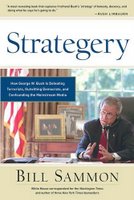The Rejection of Most Things AmericanIn the Middle East, An Unfortunate Result of Bush's Policy On Iraq
Paul McGeough, the Chief Sydney Herald correspondent in Amman, Jordan, reports that Tehran has gained influence. He calls it the staggering consequences of what many in the Middle East see as America's policy failure in the area - - "the firming supremacy of non-Arab Iran."A Jordanian businesswoman told the Herald: "We'll look back at this period as a turning point in everyone's history - you can smell the change coming."
Middle Easterners are faulting the decidedly neoconservative idea that democracy could take root in societies that do not have the cultural or institutional depth for it. King Abdullah of Jordan has accused Tehran of peddling influence in Iraq to create a "Shiite crescent" that might extend from Afghanistan to Lebanon.The fear across the region now is that a full-blown conflict in Iraq might speed the shaping of that crescent by sparking sectarian conflict in neighbouring Sunni-led countries.
An unnamed Jordanian analyst has said that,...because the regimes in Saudi Arabia, Egypt, Jordan and the Gulf states were entrenched, the only identity they had projected was their Arabness. But with the increasing influence of Shiite Iran, those regimes now felt obliged to project their Sunniness, and to take sides accordingly.
It's being said that Washington DC missed some extremely telling signs in 2004:The Americans might have read something into the refusal of the rest of the Shiite religious leaders to help their failed attempt to arrest the radical Shiite firebrand Moqtada al Sadr on charges of a brutal murder in 2004. They didn't, but some Jordanian analysts draw a line from that act of defiance to the present crisis in Iraq to conclude that the Shiites have made a choice - they are Shiite before they are Iraqi. (See my own post from April of 2004).
Because of this and other misreadings of the culture in Iraq, Iran, in effect, is holding the US a virtual hostage while mired down in the uncontrollable violence in Iraq.
In a recent Wall Street Journal article, Jagdish Bhagwati offers the Bush administration some advice: Take some lessons from the history of India...as the U.S. goes about its business of pressure-cooked democratization in Iraq, we need to appreciate that Indian democracy succeeded because her political institutions were a legacy that evolved over decades under British rule. During those years, the rule of law, elections, the judiciary, even NGOs, developed through the land. Iraq's difficulties illustrate, by contrast, how hard it is to transplant functioning democratic institutions.
There was always a better approach to sure, steady, and positive democratic development, yet for all his passion for global democratic and economic reform, President Bush had a blind spot when it came to Iraq. He risked his Presidency on acting as a radical revolutionary - unilaterally removing Saddam Hussein and transplanting democratic institutions rather than taking an organic and cooperative approach. He lied to American citizens about his confidence in (and the soundness of) the WMD intelligence. He offered 20-plus rationales for going to an elective war with Iraq. There was no plan for victory and no visible goalposts. We're in a bind in Iraq today - chaos reigns - and our President continues to deny it in public interviews.
William Buckley Jr. knows it didn't work. Christopher Hitchens rails at Francis Fukuyama for abandoning the brand of neoconservatism that brought us the Iraq War. Josh Marshall is quoting Peter Galbraith who is referring to Iraq as "The Mess." As we approach its Third Anniversary, Scott Ritter calls the Iraq War a solution to nothing.The Sunni insurgency is stronger than ever, and Shiite death squads roam the street in the guise of government police and soldiers. Torture, rape and murder are rampant as official tools of government suppression. And American troops appear to be powerless to stop this mindless slide into the abyss, all the while being killed and maimed for a cause that has always been nebulous.
..herein lies the problem: We continue to try to solve a problem we have yet to define, meaning we are seeking a solution to nothing.
- Scott Ritter







